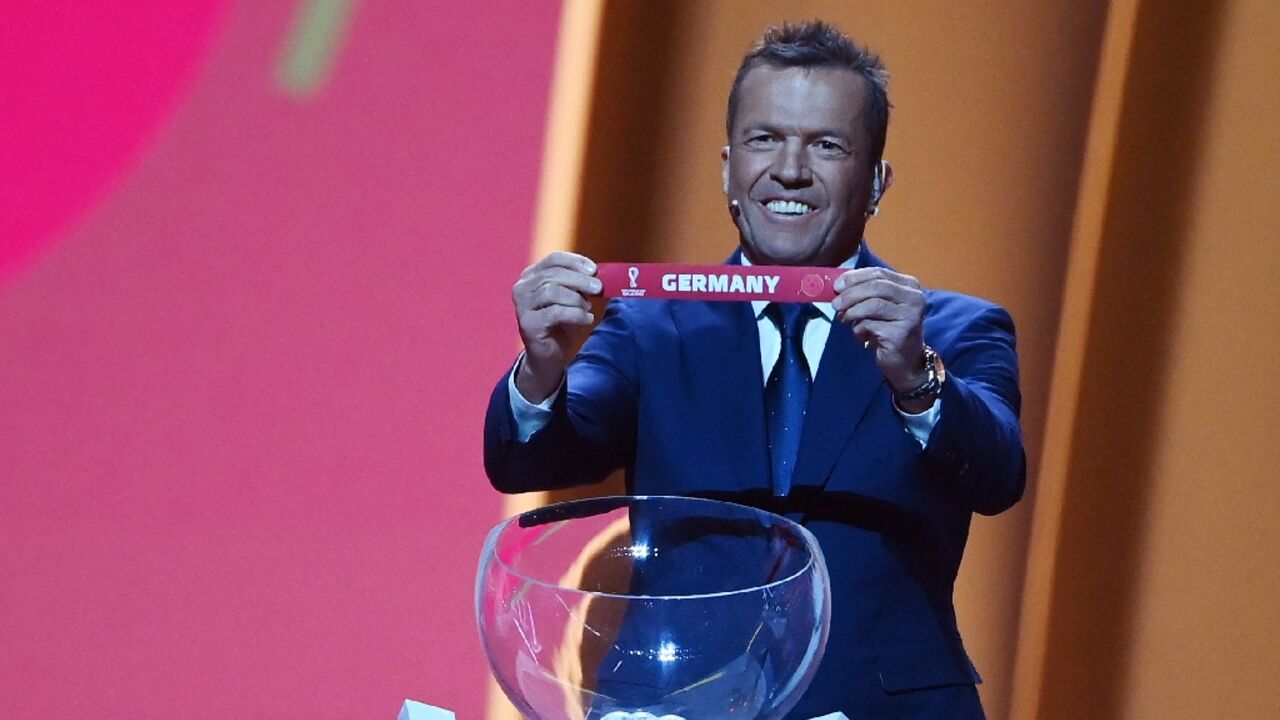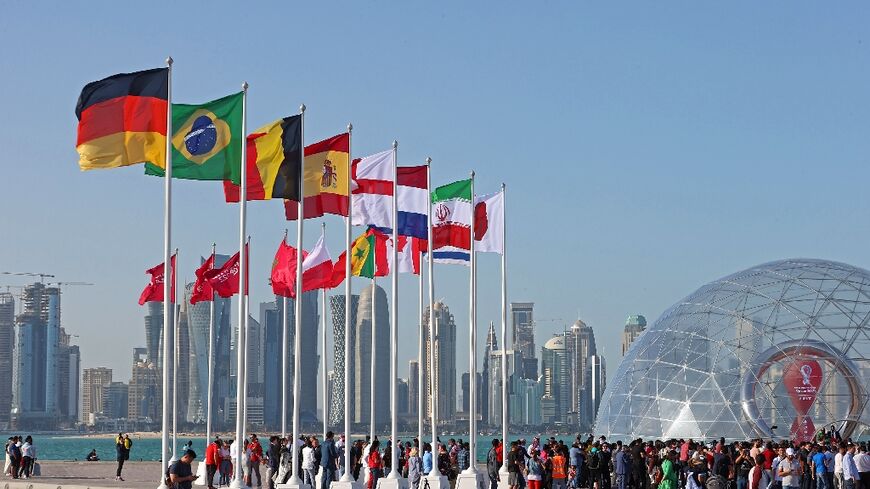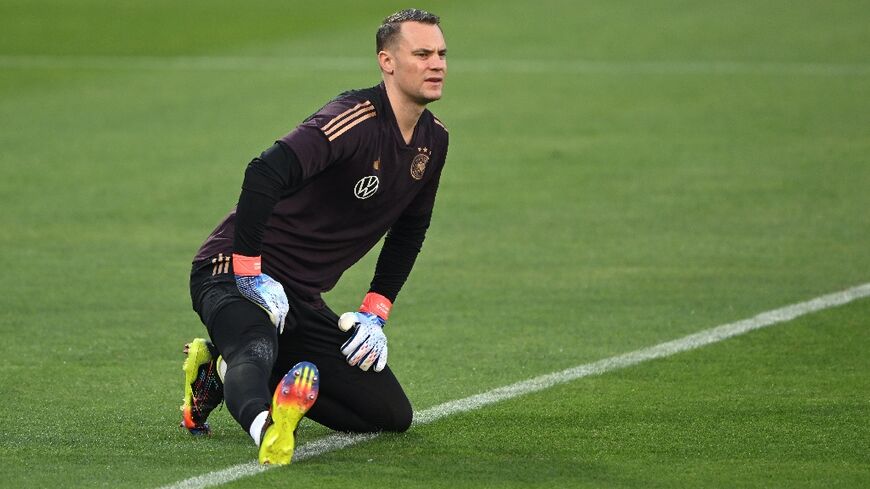Germany to face Spain at World Cup as draw pairs Iran and USA

Germany and Spain will clash at this year's World Cup after Friday's glitzy draw ceremony in Doha placed the two former winners in the same group, while bitter political rivals the United States and Iran were also drawn together.
Four-time winners Germany were in Pot Two, making them the obvious team to avoid for the top seeds in the Qatari capital. They were knocked out at the group stage in Russia in 2018.
Germany and 2010 world champions Spain are joined by Japan in Group E, which will be completed by the winner of an intercontinental play-off in June between Costa Rica and New Zealand.
Spain won 6-0 when the teams last met in November 2020, but Germany have improved since Hansi Flick replaced Joachim Loew as coach.
"It was obviously the hardest draw from the second pot, especially now that they have changed coach," said Spain coach Luis Enrique of facing Germany.
"Let's just enjoy it for now and try to be optimistic."
"We're confident, we're going to have a good tournament," said Germany goalkeeper and captain Manuel Neuer.
Iran and the United States -- who have had no formal diplomatic relations since 1980 -- last met at the 1998 World Cup in France when the Iranians won the politically-charged game 2-1 in Lyon.
"Football transcends a lot of the political stuff and we are able to remain friends on the pitch," insisted USA coach Gregg Berhalter.
England are also in Group B and will face Iran in their opening game.
Gareth Southgate's side might also come up against neighbours Wales or Scotland, although Ukraine could also take the last spot in the European play-offs, to be decided in June.
In a break with recent tradition, hosts Qatar will not feature in the tournament's opening match on November 21. That honour will go to Senegal's Group A match with the Netherlands at 1:00pm (1000 GMT). The Qataris, in their first ever match at a World Cup finals, face Ecuador that evening.
Reigning champions France will meet familiar foes Denmark and Tunisia in Group D, which will be completed by the winners of an intercontinental play-off -- either Australia, Peru or the United Arab Emirates.
France and England would be on a collision course to meet in the quarter-finals if they top their groups.
Record five-time winners Brazil will play Serbia and Switzerland -- two teams they already met in their group four years ago -- as well as Cameroon in a tough-looking Group G.
Two-time champions Argentina drew Saudi Arabia, Mexico and Robert Lewandowski's Poland in Group C.
- Last chance for Messi and Ronaldo? -
It might be Lionel Messi's last chance to win a World Cup as he turns 35 in June.
The same goes for Cristiano Ronaldo, who will be approaching 38 when Portugal come up against Ghana, Uruguay and South Korea in Group H.
Croatia, runners-up in 2018, were drawn with Belgium and Morocco in Group F, which is completed by a Canada side back at the World Cup after 36 years.
This will be the first World Cup held in November and December, the move from the usual June and July slot necessary because of the extreme heat in Qatar at that time of year.
Europe's leading leagues will play on the weekend of November 12-13 before players head to Qatar, leaving little time for national teams to prepare.
"Players will be fresher than they normally would be at a World Cup, but the lack of time is a handicap, albeit it is the same for everyone," said Spain's Luis Enrique.
Friday's event in Doha was attended by 2,000 guests, and featured former World Cup winners Cafu and Lothar Matthaeus among the draw assistants.
- 'See Qatar as promised' -
The Emir of Qatar, Sheikh Tamim bin Hamad Al-Thani, said in a speech at the draw he was "proud and happy that the world will see Qatar as we promised", promising an "exceptional World Cup in our Arab world".
The build-up to Qatar 2022 has been dominated by off-field issues surrounding the awarding of the tournament.
It is the most controversial World Cup in history, with Qatar dogged ever since it was named host in 2010 by accusations of vote-buying –- which were hotly denied –- and questions over the country's suitability.
Concerns remain over the treatment of gay and transgender supporters coming to a country where homosexuality is illegal, as well as over the working conditions of hundreds of thousands of migrant labourers.








